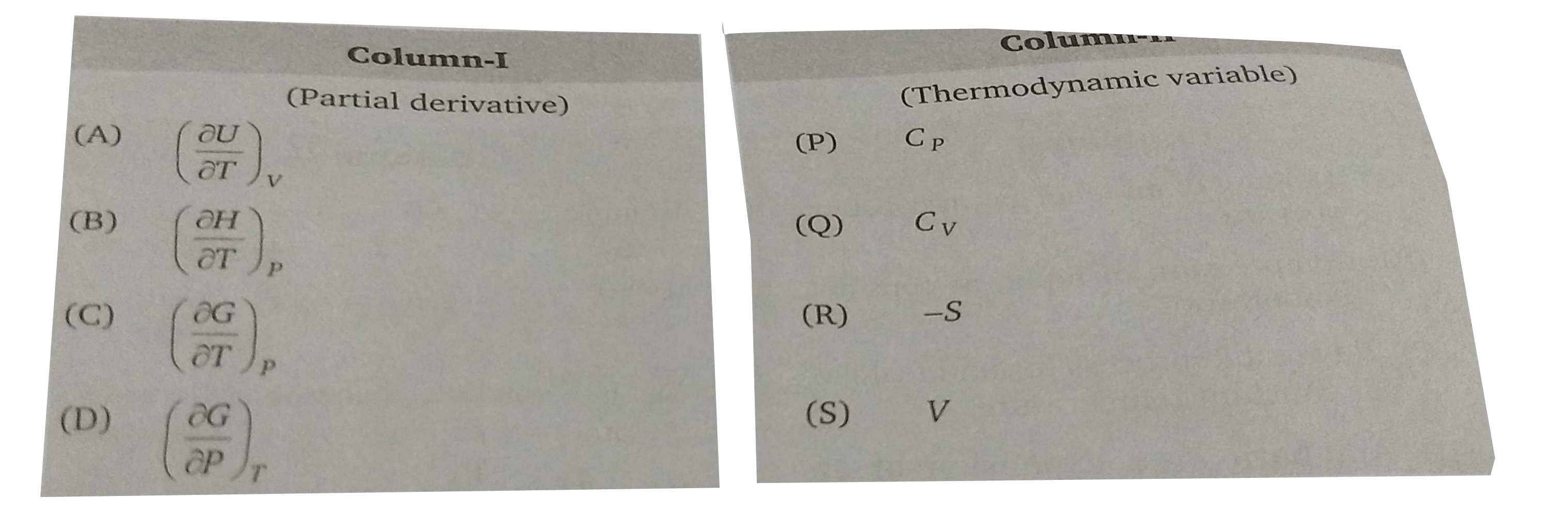Select correct statement(s)Solution in Punjabi
An adiabatic system can exchange energy with its surroundings.
A thermodynamic property which is intensive is additive.
Work done may be zero in a cyclic process.
For a simple compressible substance, the relation dq - P . Dv = 0 is true for any cycle involving mechanical work only.
The correct Answer is:A, C, D
Work is a form of energy exchange between system and surrounding in adiabatic process.
Intensive property is not additive. In cyclic process work may be zero. For cyclic process
dU=0=dq+dw⇒dq−Pdv=0
Topper's Solved these Questions
- THERMODYNAMICSBOOK - NARENDRA AWASTHICHAPTER - THERMODYNAMICSEXERCISE - Level 3 - One Or More Answers Are Correct
1 Videos
- THERMODYNAMICSBOOK - NARENDRA AWASTHICHAPTER - THERMODYNAMICSEXERCISE - Level 3 - Match The Column
2 Videos
- THERMODYNAMICSBOOK - NARENDRA AWASTHICHAPTER - THERMODYNAMICSEXERCISE - Level 2 (Q.1 To Q.30)
1 Videos
- STOICHIOMETRYBOOK - NARENDRA AWASTHICHAPTER - STOICHIOMETRYEXERCISE - Level 3 - Subjective Problems
20 Videos
Similar Questions
Assume ideal gas behaviour for all the gases considered and neglect vibrational degrees of freedom. Separate equimolar sample. Separate equimolar samples of Ne, O2 , CO2 and SO2 were subjected to a two process as mentioned. Initially all are at same state of temperature and pressue.
Step I → All undergo reversible adiabatic expansion to attain same final volume, which is double the original volume thereby causing the decreases in their temperature.
Step → After step I all are given appropriate amount of heat isochorically to restore the original temperature.
Mark the correct option(s) :
View SolutionMatch the following columns

View SolutionWrite structure of 2,2-dimethylheptane.
View SolutionWhat volume of a liquid (in L) will contain 10 mole ? If molar mass of liquid is 280 and its density is 1.4 g/mL.
View SolutionSelect the correct statement (s).
View SolutionSelect the correct statement (s) .
View SolutionSelect the correct statement (s)
View SolutionSelect the correct statement (s) .
View SolutionSelect the correct statement (s)
View SolutionSelect the correct statements (s).
View SolutionSelect the correct statements (s).
View SolutionSelect correct statement(s).
View SolutionSelect correct statement(s)
View SolutionSelect correct statement(s).
View SolutionSelect correct statements(s).
View SolutionSelect correct statement s
View Solution
